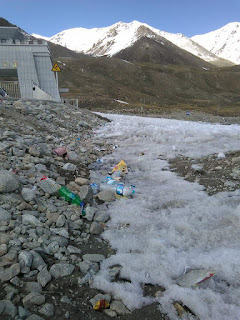 Pakistan is considered
among the lucky countries with a dynamic landscape; mountains, rivers,
deserts, lakes, waterfalls, springs, glaciers and experience four seasons
through the year.
Pakistan is considered
among the lucky countries with a dynamic landscape; mountains, rivers,
deserts, lakes, waterfalls, springs, glaciers and experience four seasons
through the year.
Gilgit-Baltistan
much renowned of its beauty is often referred to as heaven on earth, the grand
Himalayas and the Karakoram mountain ranges, the lush green valleys, the
snowcapped peaks and the crystal clear blue sky is the reason for a great
tourist attraction in the region.
Nowadays
the flow of domestic tourists towards GB is at its peak, people from the down
country are making their way to visit Gilgit Baltistan due to the high
temperature in the cities, to spend their summer vacations visiting GB and
Hunza.
According
to the Tourism Department of GB about 10 million tourists are expected to visit
GB this year including both domestic and international. I would say it will be
a big challenge for the tourism department to manage this all. The visiting of
tourists will definitely add to the economy of the local community, it will
create jobs for the local people, the income from tourism can be reinvested in
protecting the environment, they will get a lot of other benefits from the
tourism industry but on the other side it will affect the surrounding
environment of the tourist spots if the tours will be not eco-friendly. Tourism
can increase litter and pollution and can lead to the destruction of natural
habitats. Transporting a lot of people long distances using vehicles release
greenhouse gases which leads to global warming. Trekking many times on the same
route is the base for soil erosion and barren land and visiting the conserved
areas can disturb the wildlife. To reduce all these impacts mentioned above it
is very important to make our tours eco-friendly.
“Ecotourism
is responsible travel to nature areas which conserve the environment and
improves the welfare of local people”.
I would
suggest the Tourism Department GB to promote Ecotourism in the region which
will benefit the environment, economy and the local community. The local people
should be encouraged to conserve the environment rather than use it for
damaging activities; it reduces poaching and hunting of endangered species.
Waste that the tourists create should be disposed of carefully.
At GB
level, there is a need for greater corporation to protect the environment and
promote Ecotourism.

